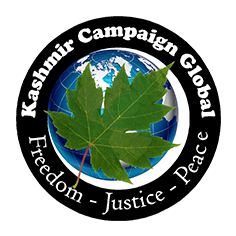What are Articles 370 and 35A?
Article 370 of the Indian constitution gave special status to the Indian occupied State of Jammu and Kashmir, a region located in the northern part of the Indian subcontinent, which has been the subject of dispute between India, Pakistan, and China since 1947 conferring it with the power to have a separate constitution, a state flag and autonomy over the internal administration of the state.
This was the basis of accession by the ruler of the state Maharaja Hari Singh which was done without the consultation of the people of Jammu and Kashmir. The original accession was on three matters: defence, foreign affairs and communications.
Article 370 embodied six special provisions for Jammu and Kashmir:
- It exempted the State from the complete applicability of the Constitution of India. The State was conferred with the power to have its own Constitution
- Central legislative powers over the State were limited, at the time of framing, to the three subjects of defence, foreign affairs and communications.
- Other constitutional powers of the Central Government could be extended to the State only with the concurrence of the State Government.
- The ‘concurrence’ was only provisional. It had to be ratified by the State’s Constituent Assembly.
- The State Government’s authority to give ‘concurrence’ lasted only until the State Constituent Assembly was convened. Once the State Constituent Assembly finalised the scheme of powers and dispersed, no further extension of powers was possible.
- Article 370 could be abrogated or amended only upon the recommendation of the State’s Constituent Assembly.
Clause 7 of the Instrument of Accession signed by Maharaja Hari Singh declared that the state could not be compelled to accept any future Constitution of India. The state was within its rights to draft its own Constitution and to decide for itself what additional powers to extend to the Central Government. Article 370 was designed to protect those rights.
This Article, along with Article 35A, defined that the Jammu and Kashmir state’s residents live under a separate set of laws, including those related to citizenship, ownership of property, and fundamental rights, as compared to residents of other Indian states. The state of Jammu and Kashmir defined these privileges to include the ability to purchase land and immovable property, the ability to vote and contest elections, seeking government employment and availing other state benefits such as higher education and health care. Non-permanent residents of the state were not entitled to these ‘privileges’.
Abrogation of Article 370 & 35A and its impacts
The abrogation of these articles is designed to strengthen the Indian ruling party Bharatiya Janata Party’s agenda to secure safe electoral constituencies throughout India by pushing its right-wing Hindutva agenda. It allows them carry out politically motivated demographic changes by means of illegal settlements in a similar fashion to the settlements made by the state of Israel in Palestine. In this case, by the introduction of the Hindu population in the only majority Muslim state.

